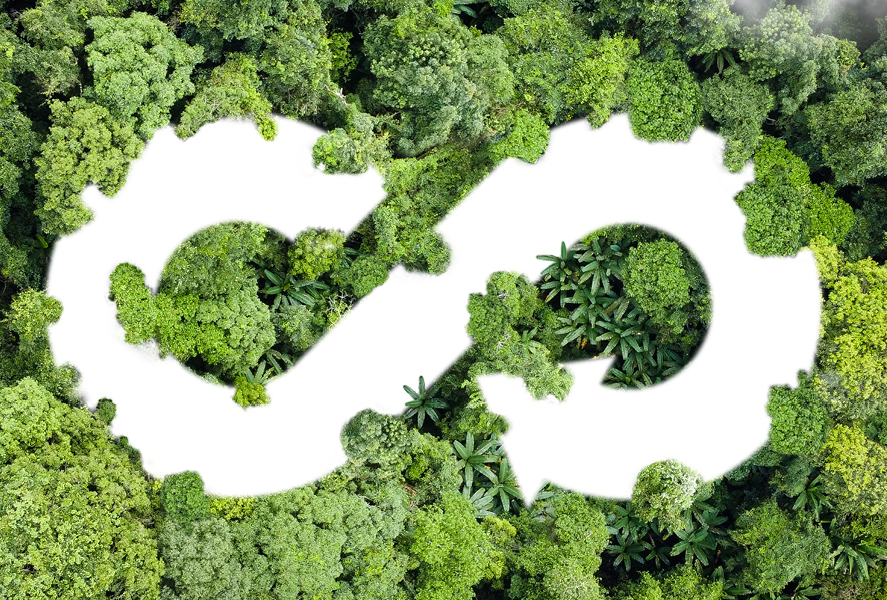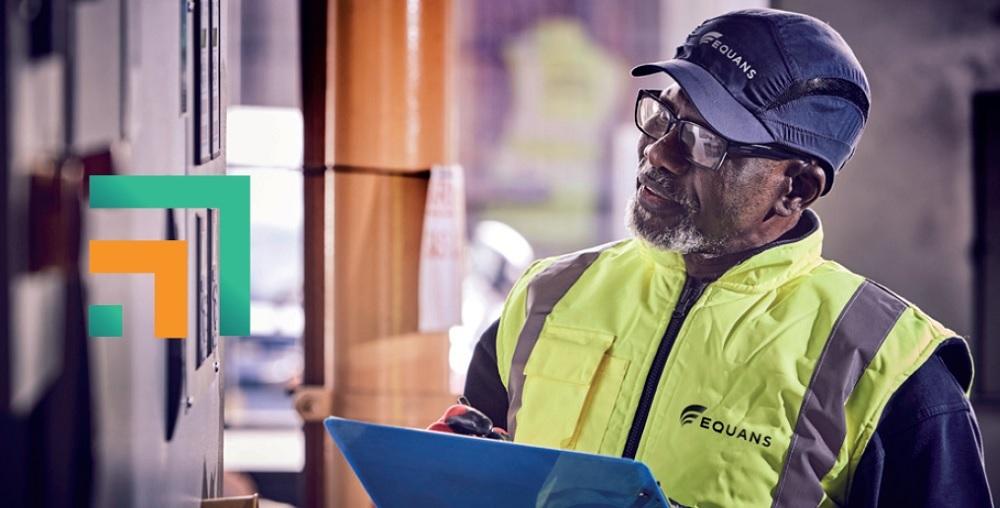Bouygues E&S, an Equans company, continues to implement the principles of the Circular Economy into our business activities
The concept of the circular economy is key to the fight against climate change. At its core, the circular economy is about reusing and repurposing our existing materials in order to minimise waste, pollution, and the energy consumption needed to produce new items.
Unlike our current linear economy, which follows a course of designed obsolescence and overconsumption, the circular economy seeks to maximise resource efficiency by keeping raw materials in use for as long as possible. As a result, it conserves natural resources, reduces carbon and greenhouse gas emissions, and minimises the impact of human economic activities on the environment.
At Bouygues Energies & Services (Bouygues E&S), an Equans company, we remain dedicated to protecting our planet for future generations and are working hard to integrate these principles into the heart of our business.
Single use plastics (SUPs) represent one of the biggest threats to the circular economy. Designed to be used once and then discarded, their existence stands in complete opposition to the principles of reuse, recycle, and reduce waste. Promoting a circular economy necessitates a reduction in our reliance on such plastics. That’s why we have been working to reduce and eventually eliminate single use plastics within our business activities and our supply chain as a key strategic focus since 2019. This has included using companywide campaign surveys, supplier workshops delivered through our partnership with the Supply Chain Sustainability School, and various local initiatives.
Among these, our core cleaning range was identified as a hot spot for single use plastic and was therefore targeted for immediate action. We introduced a retain, refill, and reuse strategy, seeking to retain cleaning containers, order vats in bulk to minimise the use of single-use plastic containers, and use super concentrated versions of our products. This approach reduces physical waste and the energy required to create and transport these containers and materials. Since the implementation of this strategy in 2019, we’ve seen an impressive reduction of 44% in SUP core cleaning plastic waste, the equivalent to 59,640 1.5 litre water bottles.
Stephen Leonard, Senior Operations Manager at Bouygues E&S, an Equans company, led the roll out of this programme. He shared: "By removing single use spray bottles of cleaning products, converting to refillable bottles filled from super concentrated products, we have reduced both plastic bottle and packaging waste. Alongside the introduction of dosing systems, we have saved almost 3 tonnes of CO2 associated with the delivery and ultimate disposal of cleaning products.”
It's not just plastic waste that we’re targeting in our move to align with a circular economy. Across our UK businesses, we’re seeking to ensure that zero e-waste goes to landfill. We request the return of unused corporate laptops, phone, and tablets so that it can be repaired and reused by another employee; repurposed through our regular donations of old technology to schools and charities, where it gains a new lease of life; or recycled. Given that e-waste is toxic, non-biodegradable, and wastes multiple finite resources, embracing the circular economy principles when it comes to unused technology is a vital step towards sustainability.
Whether it’s by reducing plastic waste, repurposing old tech, recycling discarded fishing nets to create the carpets at our headquarters, or encouraging use of the Materials Exchange Platform which enables projects to donate unused materials for others to use (and vice versa), we’re doing what we can to embed the principles of the circular economy into our business activities.
Jacob Withington, co-chair of our employee-led environmental network, the Green Network, added: “At the Green Network, we’re passionate about raising awareness and encouraging adoption of the circular economy’s principles. Our most recent webinar, ‘Sustainable Economics: What future beyond growth?’ which explored the concepts of a circular economy and living within planetary boundaries, was well-received throughout the business. The high levels of engagement throughout the webinar demonstrate the ongoing appetite for sustainability practices and a continued move towards a non-linear economy.”

